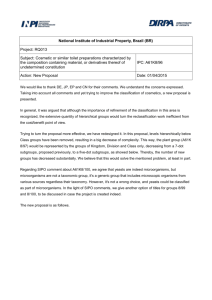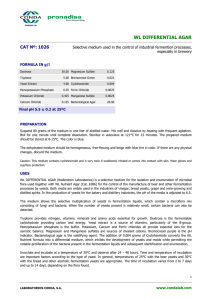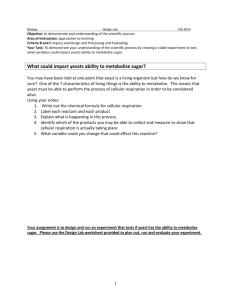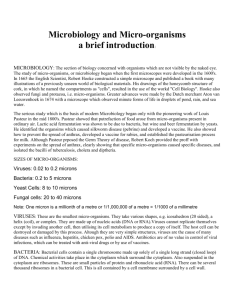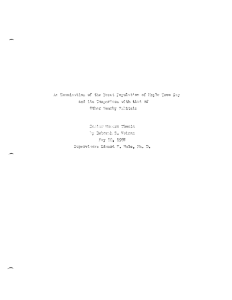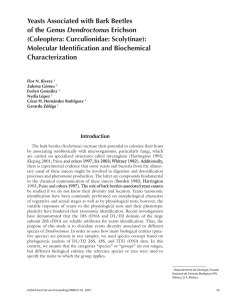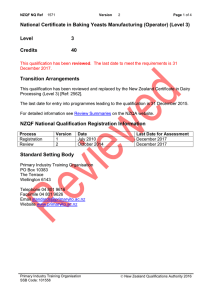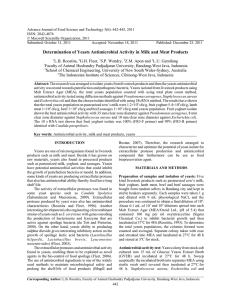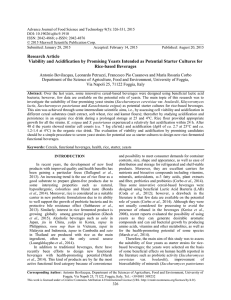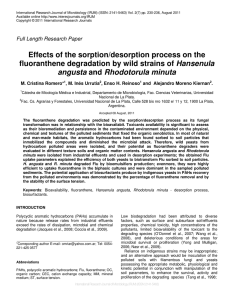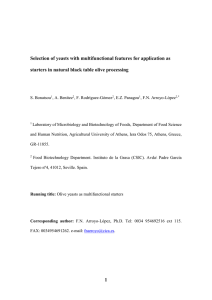CENTENNIAL HONORS COLLEGE Western Illinois University Undergraduate Research Day 2015
advertisement
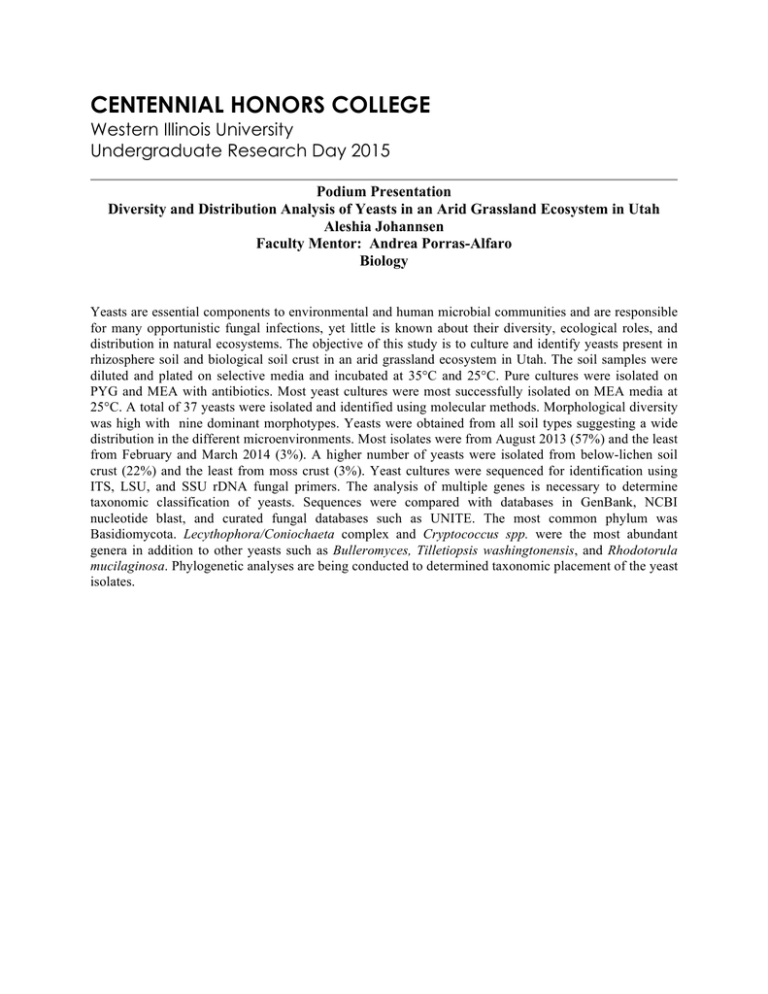
CENTENNIAL HONORS COLLEGE Western Illinois University Undergraduate Research Day 2015 Podium Presentation Diversity and Distribution Analysis of Yeasts in an Arid Grassland Ecosystem in Utah Aleshia Johannsen Faculty Mentor: Andrea Porras-Alfaro Biology Yeasts are essential components to environmental and human microbial communities and are responsible for many opportunistic fungal infections, yet little is known about their diversity, ecological roles, and distribution in natural ecosystems. The objective of this study is to culture and identify yeasts present in rhizosphere soil and biological soil crust in an arid grassland ecosystem in Utah. The soil samples were diluted and plated on selective media and incubated at 35°C and 25°C. Pure cultures were isolated on PYG and MEA with antibiotics. Most yeast cultures were most successfully isolated on MEA media at 25°C. A total of 37 yeasts were isolated and identified using molecular methods. Morphological diversity was high with nine dominant morphotypes. Yeasts were obtained from all soil types suggesting a wide distribution in the different microenvironments. Most isolates were from August 2013 (57%) and the least from February and March 2014 (3%). A higher number of yeasts were isolated from below-lichen soil crust (22%) and the least from moss crust (3%). Yeast cultures were sequenced for identification using ITS, LSU, and SSU rDNA fungal primers. The analysis of multiple genes is necessary to determine taxonomic classification of yeasts. Sequences were compared with databases in GenBank, NCBI nucleotide blast, and curated fungal databases such as UNITE. The most common phylum was Basidiomycota. Lecythophora/Coniochaeta complex and Cryptococcus spp. were the most abundant genera in addition to other yeasts such as Bulleromyces, Tilletiopsis washingtonensis, and Rhodotorula mucilaginosa. Phylogenetic analyses are being conducted to determined taxonomic placement of the yeast isolates.
